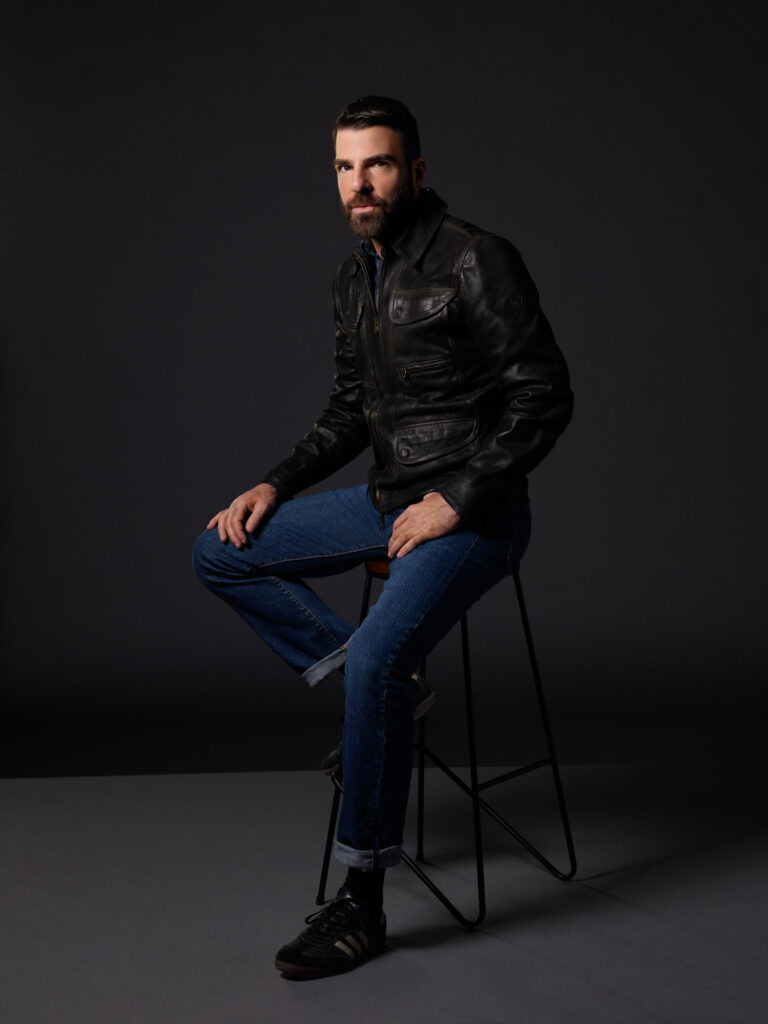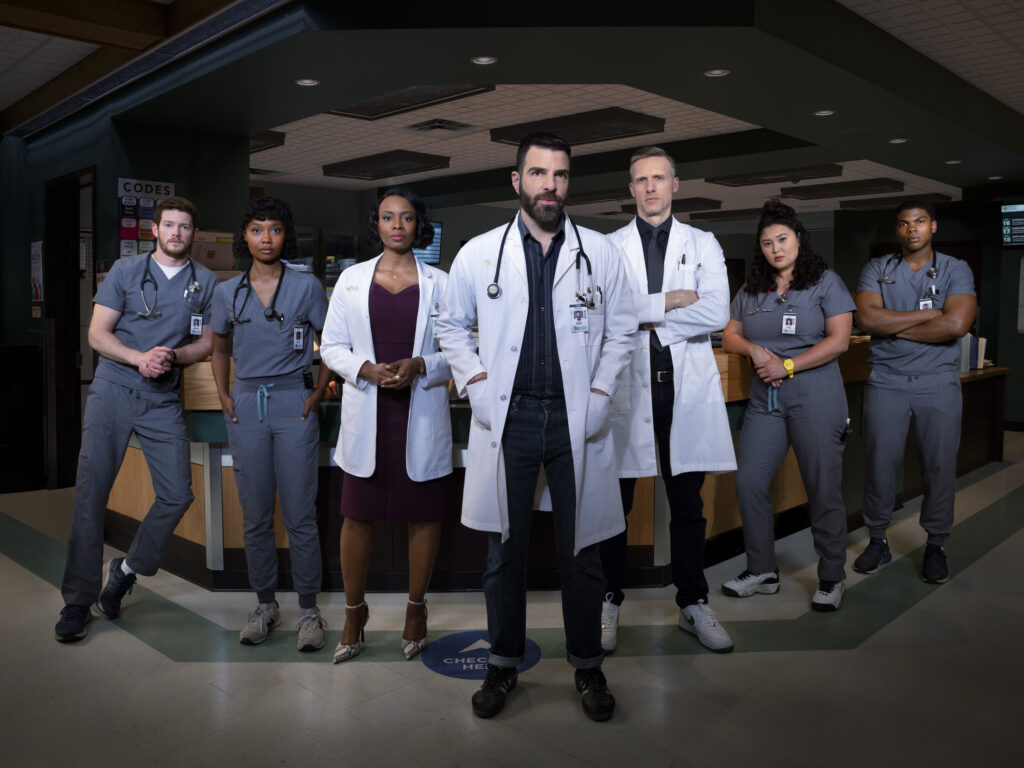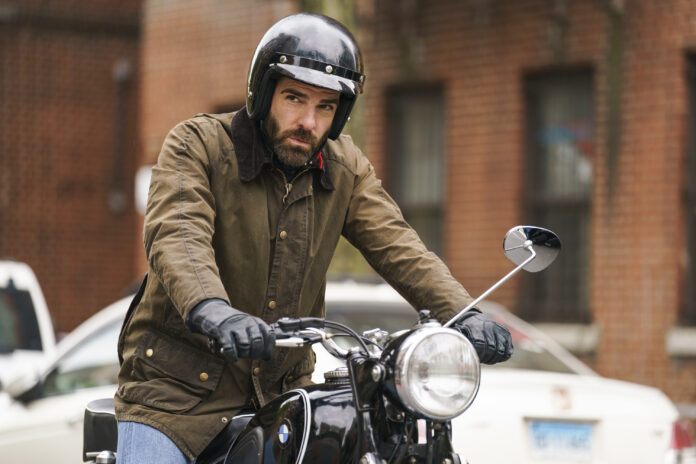Finding a gay doctor to address your health needs in real life is hard enough. The same has often been true on TV, where primetime medical dramas have typically opted for straight practitioners in lead roles.
But that’s changing, thanks to Dr. Oliver Wolf, who happens to be openly gay, on the new NBC drama “Brilliant Minds.” Zachary Quinto — not a doctor, but gay — portrays Wolf, who leads a team of interns studying the mysteries of the brain in his neurology department in New York City.
“It’s a big deal because it’s not a big deal, actually,” says Quinto, 47, best known for playing Spock in the new “Star Trek” movies and his roles on “American Horror Story.” “Oliver Wolf’s sexuality is a complex aspect of who he is as it is for any human being. But it’s by no means the only aspect of his personality or his experience.”
To embody Wolf, Quinto pulled inspiration from a real-life doctor, the original basis for his character, who didn’t come out until near the end of his life: Dr. Oliver Sacks, who was also a neurologist. Sacks died in 2015, at age 83. Cited as “the poet laureate of medicine” by The New York Times, he practiced during the mid to late 20th century, when being a gay anything, let alone a doctor, was far less accepted by society.
“Oliver Sacks had a very different experience of being a gay man than I have,” Quinto says. “And he was actually celibate for 35 years. I think anybody who learns that about him says, ‘How can someone be celibate for so long?’ And I think the answer to that lies in the fact that at that time, gay identity was a singularly defining issue. And if you were a gay man in particular, then that is what you were — you were ‘a gay,’ whatever you did.”
That’s not true for Wolf, as the series establishes both his professional and sexual identity, with the potential for something more, given the obvious chemistry we see mid-season between him and a hot high school principal (Christopher Bencomo). Moreover, those exchanges are met as if he were just a straight doctor — that is, this isn’t a show about him being gay.
In speaking with Quinto, you get the impression that his character is not just inspired by Sacks, but an extension of what Sacks’ life may have looked like outside of the doctor’s office if he could have been out. What if the stakes hadn’t been so high for Sacks to be openly gay? What if he could have still been a successful genius who published dozens of books about his patients and transformed the field of neurology while also being his authentic self?
“He knew that if he was honest about that part of himself, that he might not have been able to do any of that, or if he did it, it might not have been received or accepted by the mainstream to the degree that his work was,” Quinto says about how high the stakes were for someone in Sacks’ profession to be openly gay at the time. Coming out in that era, he added, “had the unfortunate occurrence of limiting your opportunities and diminishing the impact that you might be able to make in a particular field because you were discriminated against or alienated or excised from the process or the conversation.”
“It’s a big deal for me, an openly gay actor, to be playing an openly gay character in a primetime network medical drama,” he says. “But it’s primarily because that aspect of the character is not really that big of a deal, and we live in a world for which that can be said. And that’s the miracle of the progress we’ve made and the reminder of how much progress we need to continue to fight for to ensure that that narrative doesn’t get interrupted or diverted.”
So no, Dr. Wolf will not live a celibate life.
“Yeah, that’s a safe bet,” Quinto confirms.
It certainly helped to have a team of LGBTQ+ creatives bringing Wolf to life. Greg Berlanti, super-producer and founder of Berlanti Productions, was instrumental in getting “Brilliant Minds” off the ground. Berlanti wrote for “Dawson’s Creek” before going on to a successful producing and writing career for series such as The CW’s “Riverdale” and “Brothers & Sisters” and making many contributions to DC Comics on film and TV. Meanwhile, Michael Grassi, also a “Riverdale” producer, is the showrunner.
“The people that you just mentioned are all very sensitive to and organically tied to that exploration and that representation, so it wasn’t particularly effortful; it was just a part of the stories that they want to tell and the ways in which they tell the stories,” Quinto says. “And that resonates for me. So there was a throughline and a connection that just made sense, really, with them.”
As for Quinto himself, he’s been publicly out since 2011, when he acknowledged being gay after the suicide of bisexual teenager Jamey Rodemeyer, who took his own life at 14.
“In light of Jamey’s death, it became clear to me in an instant that living a gay life without publicly acknowledging it is simply not enough to make any significant contribution to the immense work that lies ahead on the road to complete equality,” he posted on his website at the time.

“I just feel like what I’ve learned from myself is that ultimately integrating with my authentic self, as complicated as that person might be, using that goal as a motivator in my own life, has transformed the way that I see the world and the way that I experience the world,” he says now. “And if that exploration within myself can resonate for other people and young people, whether they’re aspiring to be actors or doctors or pilots or whatever, that’s always been really important to me.”
His work speaks for itself, and his success is a marker of the progress we’ve made that Sacks couldn’t experience in his lifetime. Outside of “Brilliant Minds,” Quinto has immersed himself in work that gives clout and voice to the queer experience. Those roles include the 2020 adaptation of “The Boys in the Band” for Netflix and “I Am Michael,” the 2015 biographical drama based on The New York Times essay “My Ex-Gay Friend.”
“It’s always been something that’s quietly motivated me, recognizing that we do have an opportunity, but we also have a responsibility to a younger generation to be a model of authentic integration,” he says. “That’s how I see it. And that was the moment when I made the decision to come out publicly — I could no longer separate those two things. This experience that I was having in my career with the great good fortune and many opportunities that I was being presented with, and a part of me that was split off from the truth of who I am.”
“That has not always been the easiest thing to integrate or explore within myself, if I’m honest,” he continues. “It generated my own inner conflicts and turmoils over the years to try to figure out how to do that. And I’m not saying I’ve solved it, but I’m certainly closer to it now than I would’ve been if I had tried to keep them separate. So that’s a big part of this in terms of how it might reverberate for younger people or other people of any age, really.”
As right-wing politicians continue to exploit queerness for political gain, often at the expense of LGBTQ+ youth, it’s crucial for queer young people to recognize that they can thrive in society without sacrificing their identities. Quinto is aware of his role in helping to convey this message.
“What you’re seeing is a real battle at the moment, between expanding consciousness and destructive consciousness and fear-based consciousness,” he says. “So for me, this moment to be a part of stories that are very much leaning into the idea of expanding consciousness, that is something that I think is, again, somehow in a larger way, purposeful. And I’m recognizing that as it’s unfolding, because it’s all very real time. I’m in this moment of only now just having these conversations in such a public-facing way.”
With the election approaching and on everyone’s minds, Quinto is using his public platform to address critical issues at the forefront of political discourse. He notes two of them — climate change and artificial intelligence — and poses an urgent question voters might ask themselves: “How can I participate in these conversations in a way that amplifies my belief that the only way we can meet, survive and potentially transcend the challenges facing humanity is through collective action?”
The actor emphasizes the current moment as one of unprecedented shifts in global consciousness. “This election is the clearest and most impactful distillation of that conversation and the ongoing battle,” he says, noting that the decisions we make now will have profound consequences, reverberating not only across the U.S. but around the world. “It’s urgent and crucial that we recognize the stakes involved,” he adds.
These pressing issues, he insists, are fundamentally about the survival of the human race.
“I say that anybody who has a meditation practice right now is like DEFCON 5, Red Zone: get to your meditation,” he says. “We have to be focusing on the ways that we can move this conversation in the direction of the light and the direction of what’s possible and the direction of how we can achieve things if we really come together and see that the things that are going to confront us don’t know sexual identity. They don’t know gay or straight or cis or trans. They don’t know Republican or Democrat. They don’t know American or European. They don’t know these things, and they’re not going to matter. What’s going to matter is that we show up for each other and with each other to overcome the challenges and to solve the problems that we’re going to have to solve and the challenges we’re going to have to face.”


